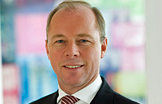Allianz presented today the second edition of its "Global Wealth Report", analyzing wealth and debt dynamics of private households in 50 countries. It shows that last year’s marked global upswing paid dividends for savers. Gross global financial assets climbed in 2010 by 6.2 percent to total EUR 95.300 trillion. For the first time, the previous record from end-2007 is surpassed.
Global financial assets at new record high
Download
However, strong growth in 2010 cannot hide the fact that overall wealth dynamics have been subdued in recent years. Gross financial assets have been growing by an average of 4.1 percent a year since 2000; per capita growth at 3.2 percent was even slower. "Compared with global economic growth and inflation over the same period, this performance is rather disappointing," said Michael Heise, Chief Economist at Allianz. "Recurring financial crises and stock market slumps have taken their toll on savers."

Growth slower in established industrial countries
The subdued development is particularly evident in the established industrial countries: Average growth was much slower than the global average and gross financial assets per capita at end-2010 were on average still below the level reached before the crisis. By contrast, gross financial assets in the emerging markets of Asia, Latin America and Eastern Europe grew by double-digit percentages over the past ten years. In Asia and Latin America, the financial crisis had only a negligible impact on growth. All in all, gross per capita financial assets in the poorest countries have risen by more than 50 percent since the end of 2007.
But despite this diverging speed in wealth accumulation, illusions over the global prosperity gap are out of place: In absolute terms, the differences in average per capita wealth remain enormous. In fact, over the last decade, the gap has widened even further, to almost EUR 90,000. However, more and more private households from poorer countries have made it into the ranks of the global wealth middle class, which is defined by the "Global Wealth Report” as having per capita wealth of between EUR 6,000 and EUR 36,200. “Today, more than 300 million people from developing and emerging countries are members of the global wealth middle class. That means that more than half of the global middle class no longer come from the “old” industrial countries. This will have profound implications for financial markets worldwide”, according to Heise. Furthermore, the wealth upper class, too, is becoming more and more global. Already around 10 percent of these households live today in developing and emerging countries.
Deleveraging already occuring
With average gross per capita financial assets of EUR 60,123 Germany is, as expected, part of the rich world. However, it ranks only 17th in the ranking of the richest countries which – like last year – is led by Switzerland benefiting also from its strong currency. Switzerland is followed at some distance by the USA, Japan, Denmark and the Netherlands.
The relatively low figure for Germany reflects the state of its social security system with its low level of funded solutions. Yet, growth rates over the past ten years paint a more favorable picture: Germany’s growth rate of 3.4 percent a year is above the Western European average (3.1 percent). Since the financial crisis, Germany – together with Austria and the Scandinavian countries – belongs to the group of countries with the highest increase of financial assets in Western Europe. On the other hand, per-capita wealth in peripheral European countries slumped, in some cases sharply. In turbulent times, a high savings rate, a more conservative asset allocation, and a relatively modest debt ratio (debt as percentage of economic output) pay off.
The last two points are increasingly no longer characteristic only for Germany. Around the world, but in particular in richer countries, a trend towards "safe assets" is evident. In the global investment mix, securities have lost five percentage points since the year 2000 whereas bank deposits have gained four percentage points. "Although investors' wait-and-see position is understandable in a climate marred by uncertainty on the markets, this behavior could threaten the objective of long-term asset accumulation. Given the dramatic consequences of demographic change, savers simply cannot afford to seek refuge in low-risk and low-yielding investments," said Heise. "So much is at stake: the efforts to resolve the current crises and to restore confidence among individual investors will have far-reaching consequences on savings patterns – the repercussions will also be felt by the next generation."
With regard to private debt, German households lead the way: their debt ratio has been decreasing more or less continuously over the last decade, from 73 percent in 2000 to 62 percent at the end of 2010. Encouragingly, this trend is now evident on a global scale as well. The global debt ratio has dropped by 3.5 percentage points to 67 percent since reaching its peak in late 2007. However, this number masks huge regional differences which are closely correlated to wealth levels: Private indebtedness is first and foremost a rich-country problem where the debt ratio stands on average at 88 percent. By contrast, the debt ratio of the poorest countries is still at a low 20 percent.
Nonetheless, these figures underline that the much-trumpeted deleveraging is already occurring, at least among private households; when it comes to debt, they have started to rethink. Consequently, in the last two years, net financial assets (gross financial assets less debt) grew faster than gross financial assets. However, this was the exception rather than the rule over the past decade. Over the period as a whole, net financial assets have been growing by an average of 3.3 percent a year (or 2.4 percent per capita) – and thus considerably lower than gross financial assets.
As with all content published on this site, these statements are subject to our Forward Looking Statement disclaimer.
Link to the disclaimer